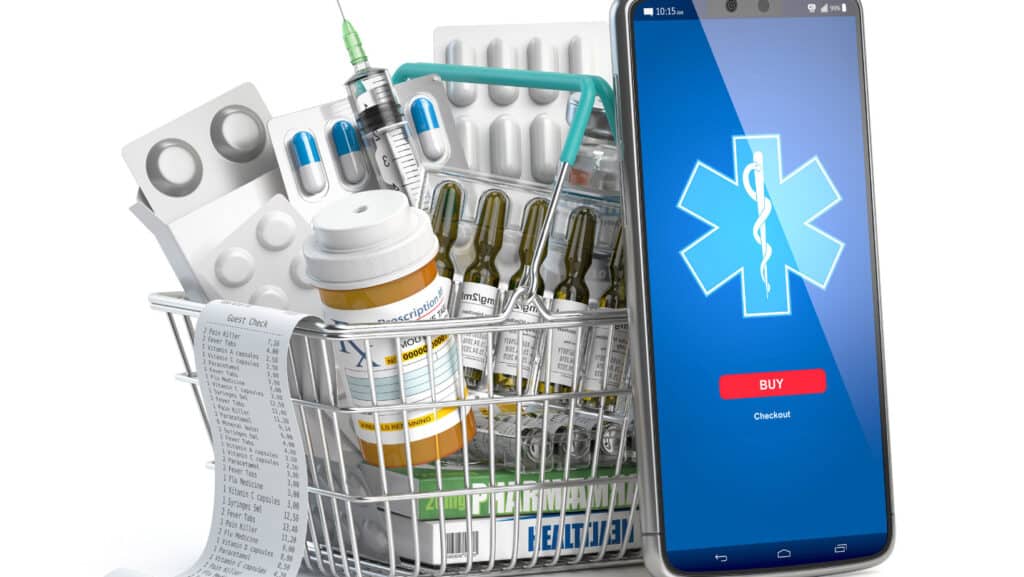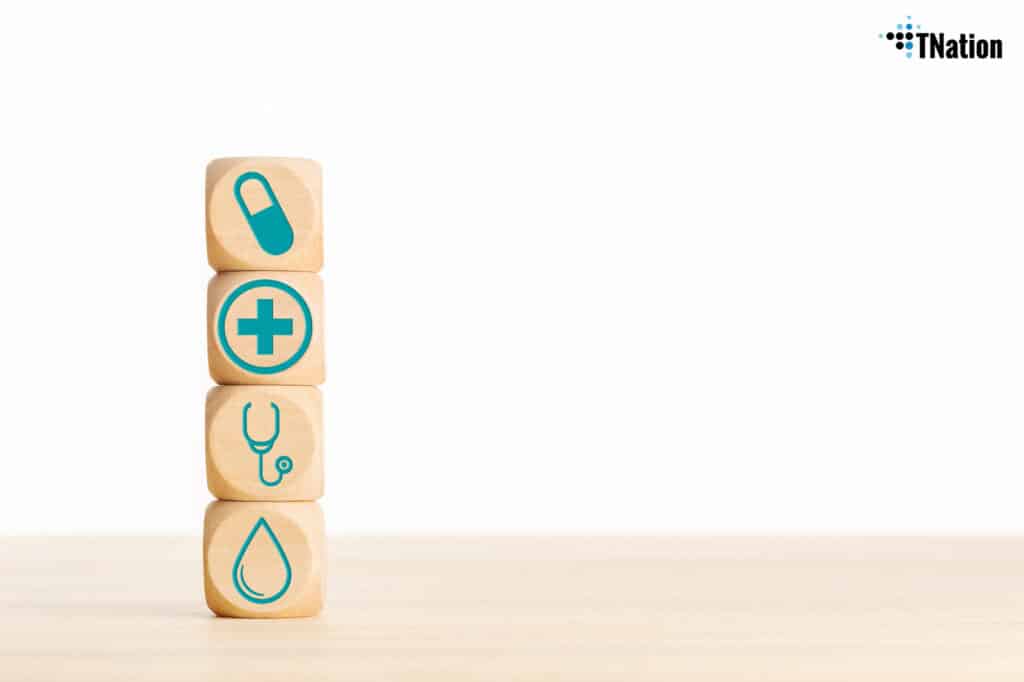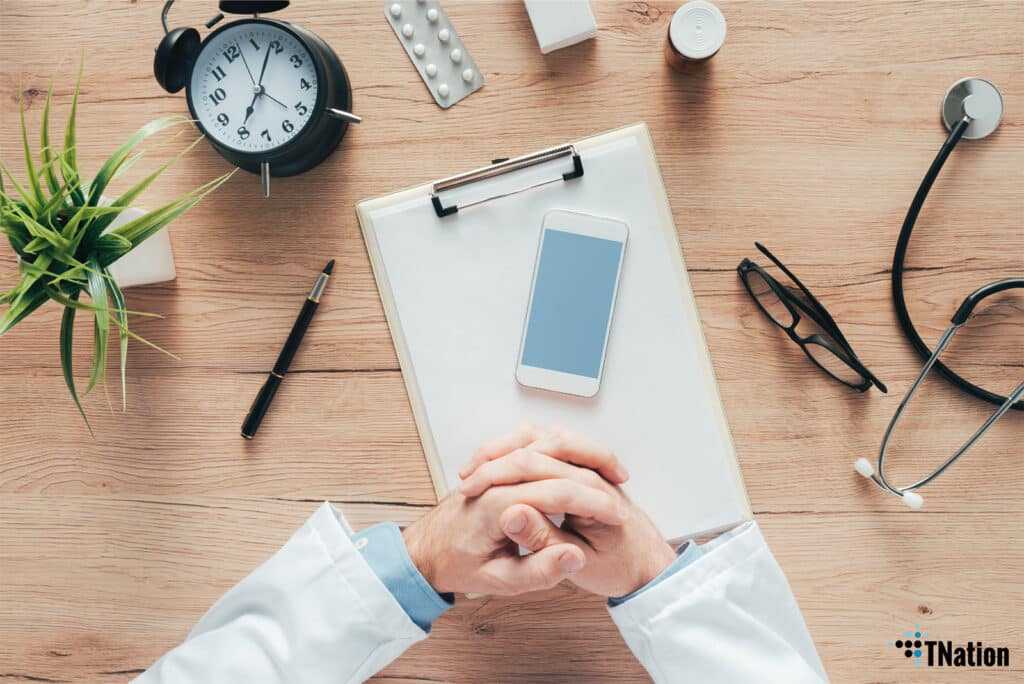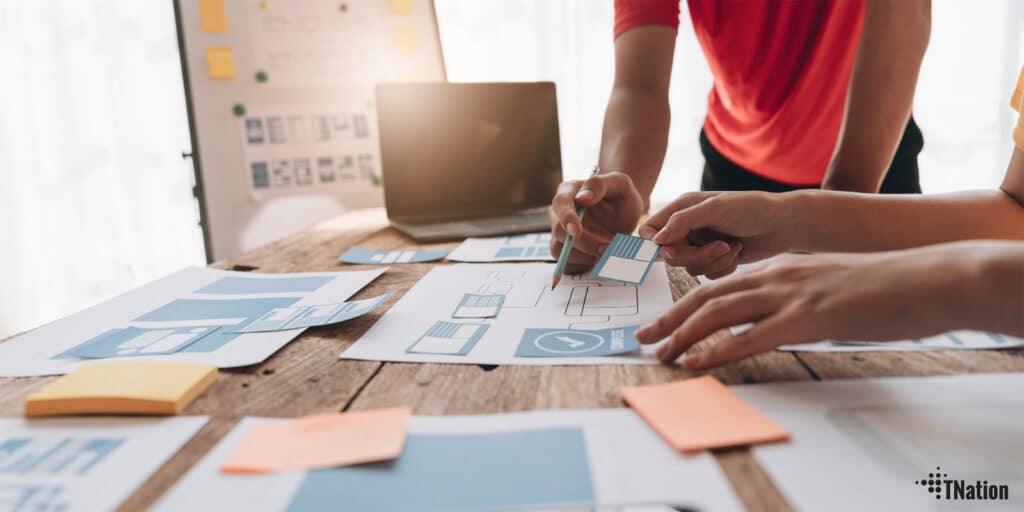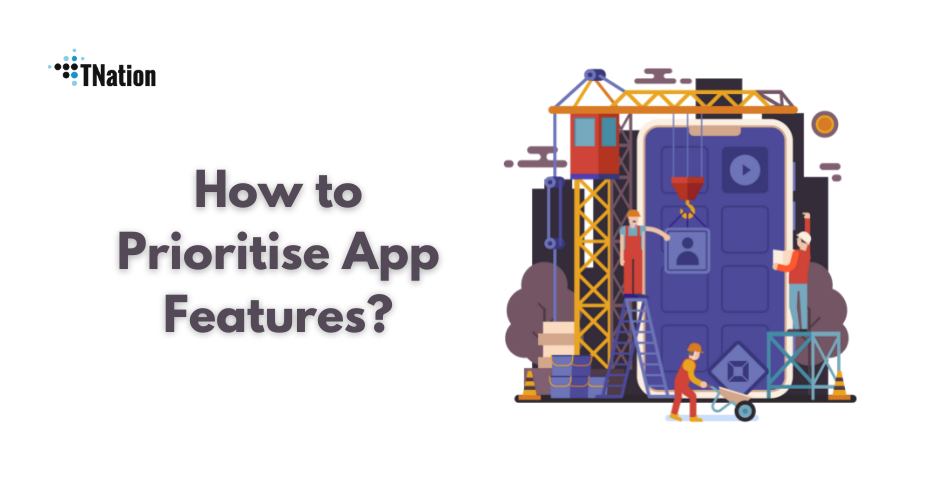Even in the healthcare industry, digital solutions are becoming increasingly important. According to research from OrthoLive, 93% of doctors believe that healthcare apps can improve patients’ health. Read on to learn insights into shaping healthcare app development in 2023 and how they can improve patient care.
The Growing Importance of Healthcare App Development
Healthcare app development has become increasingly important in the 21st century. With advancements in technology, the medical industry has recognized the potential of mobile applications to enhance patient care and improve efficiency. In today’s fast-paced world, people are accustomed to using apps for various purposes, from managing their finances to ordering food. It only makes sense that healthcare should follow suit.
Healthcare apps offer numerous benefits, such as enabling remote consultations, facilitating appointment scheduling, and providing access to medical records. These apps empower patients to take control of their health and well-being while reducing the burden on healthcare providers. By leveraging the power of smartphones and other mobile devices, healthcare apps are transforming how we engage with healthcare services.
Key Trends in Healthcare App Development
In 2023, healthcare app development is witnessing several key trends shaping the industry. One of the most significant trends is the rise of telehealth. Telehealth allows patients to consult with healthcare professionals remotely, eliminating the need for in-person visits. This trend has gained even more prominence due to the COVID-19 pandemic, as people seek safer alternatives to traditional healthcare settings.
Another significant trend is the integration of remote patient monitoring into healthcare apps. With the help of wearable devices and sensors, healthcare providers can collect real-time patient health data and monitor their condition remotely. This trend has the potential to significantly improve patient outcomes by enabling early detection of health issues and facilitating timely interventions.
Understanding the Distinction: Health App vs. Medical App Explained
Understanding the difference between health apps and medical apps regarding healthcare app development is essential. Health apps focus on general health and wellness, providing information and tools to help individuals maintain a healthy lifestyle. These apps may include fitness tracking, nutrition advice, and mindfulness exercises.
On the other hand, medical apps are designed to assist healthcare professionals in diagnosing and treating medical conditions. These apps often require regulatory approval and must adhere to strict guidelines to ensure patient safety and data privacy. Medical apps may include features such as electronic health records, diagnostic tools, and medication reminders.
5 Types of Healthcare Apps
Healthcare apps come in various forms, catering to different needs and user demographics. Some of the most common types of healthcare apps include:
Electronic Health Record Apps
Electronic Health Record (EHR) apps have revolutionized managing patient health information in healthcare settings. These apps have made it easier for healthcare providers and patient management staff to access and update patient records, improving efficiency and care coordination.
One of the main benefits of EHR apps is that they provide a centralized location for storing and accessing patient health information. Gone are the days of flipping through paper charts or searching multiple systems to find the needed information.
With EHR apps, healthcare providers can quickly and easily access a patient’s medical history, medications, test results, and more, all in one place. This saves time and ensures that accurate and up-to-date information is readily available.
Telemedicine Apps
Telemedicine apps have revolutionized the healthcare industry by enabling remote consultations and improving healthcare accessibility. These apps allow patients to connect with healthcare professionals through video, voice, or messaging platforms, eliminating the need for physical doctor visits.
One of the critical advantages of telemedicine apps is convenience. Patients can consult with healthcare professionals from their homes, saving them time and money on travel and waiting room visits. It is essential for individuals with chronic illnesses or mobility issues who may find it challenging to visit a doctor in person.
Appointment Management Apps
Appointment management apps are a game-changer in streamlining the process of scheduling, rescheduling, or canceling appointments. These apps provide a convenient and efficient way for patients and providers to manage their appointments, ultimately saving valuable time for everyone involved.
For patients, appointment management apps eliminate the need to call and wait on hold to schedule or reschedule appointments. Instead, they can simply log into the app and view available real-time appointment slots.
Remote Patient Monitoring Apps
Remote patient monitoring apps have revolutionized how healthcare providers monitor and manage patient health. These apps allow patients to track their vital signs, symptoms, and other health data from the comfort of their own homes, and healthcare providers can access this information in real time.
They are beneficial for managing chronic diseases, allowing healthcare providers to monitor patients’ conditions and intervene if necessary closely. For example, patients with diabetes can use remote patient monitoring apps to track their blood glucose levels, and healthcare providers can receive alerts if levels become dangerously high or low. It allows for timely interventions and can prevent complications.
Medication Management Apps
Medication management apps have become increasingly popular and can be a valuable tool in helping patients adhere to their medication schedules. These apps provide reminders and notifications to ensure patients take their medications on time. They can also track medication intake, allowing patients to monitor their progress and record their medication history.
One of the critical benefits of medication management apps is the ability to set reminders. Many people lead busy lives and can easily forget to take their medications at the right time. These apps can send reminders to the patient’s phone or other devices, ensuring they never miss a dose. Some apps even allow customized reminders, such as setting different alarm tones or notifications for various medications.
Key Features of a Healthcare App
To be successful, healthcare apps must incorporate fundamental features that address the specific needs of users and healthcare providers. Some essential elements to consider include:
- User-friendly Interface: The app should be designed with a user-friendly interface, making it simple for users to navigate and access desired features.
- Secure Data Management: It is crucial to prioritize robust encryption and adherence to regulatory guidelines for data privacy and security in healthcare apps.
- Integration with Wearable Devices: Healthcare apps can use data from wearable devices to offer personalized recommendations and more accurate insights.
- Appointment Scheduling: Users can schedule appointments with healthcare professionals through the app, saving time and streamlining the process.
- Push Notifications: Sending reminders and alerts to users via push notifications can help them stay on track with their healthcare goals and appointments.
Regulatory Considerations for Healthcare App Development
Developing healthcare apps requires compliance with regulations such as HIPAA in the US or GDPR in the EU. Robust security measures, certifications, and audits are essential to protect patient data privacy and maintain trust.
The Cost of Developing a Healthcare App
The cost of developing a healthcare app can vary depending on complexity, features, and the development team’s experience. Healthcare app development can range from tens to hundreds of thousands of dollars on average. Factors contributing to the cost include design, development, testing, integration with third-party systems, and ongoing maintenance and updates.
It’s essential to consider the long-term value and potential return on investment when determining the budget for healthcare app development. Investing in a well-designed and functional app can improve patient outcomes, increase efficiency, and a competitive advantage in the healthcare industry.
The Future of Healthcare App Development
The future of healthcare app development is filled with exciting possibilities. As technology advances, healthcare apps will become even more sophisticated and powerful. According to GrandView Research, the market is expected to expand at an annual growth rate of 11.6% from 2023 to 2030. Here are some trends that are likely to shape the future of healthcare app development:
- Artificial Intelligence (AI): AI-powered healthcare apps have the potential to revolutionize diagnostics, treatment planning, and patient care. From predictive analytics to chatbot-based symptom assessment, AI will play a significant role in improving healthcare outcomes.
- Virtual Reality (VR) and Augmented Reality (AR): These technologies can potentially enhance medical education, surgical training, and patient rehabilitation. VR and AR can create immersive experiences that simulate real-world scenarios, allowing healthcare professionals and patients to practice and learn in a safe environment.
- Blockchain Technology: Blockchain technology offers enhanced security, privacy, and interoperability in healthcare app development. It can facilitate the secure sharing of patient data across multiple healthcare providers while maintaining data integrity and patient consent.
Technology Partner for Healthcare Development
Developing a healthcare app requires expertise in both healthcare and technology. Choosing the right technology partner is crucial to ensure your app’s success. Look for a partner with a deep understanding of the healthcare industry, regulatory requirements, and experience in developing secure and user-centric healthcare apps.
A reliable technology partner will guide you through the entire development process, from initial ideation to post-launch maintenance and updates. They will help you navigate complex regulatory landscapes, integrate advanced technologies, and ensure your app meets the highest quality and security standards.
For example, the TNation team developed healthcare applications used in over 40 clinics that met the client’s requirements and are used regularly.
Conclusion
As we venture into the future of healthcare app development, it’s clear that these applications will continue to reshape the healthcare landscape. From improving patient care and empowering individuals to streamline administrative processes, and enabling data-driven decision-making, healthcare apps have the potential to revolutionize the way we experience and deliver healthcare.
By staying ahead of the curve and embracing the latest trends and technologies, healthcare app developers can create innovative solutions that enhance patient outcomes and drive positive change in the healthcare industry. So, let’s embrace the next wave of technological advancements and unlock new possibilities in healthcare app development.
Get ready to shape the future of healthcare for everyone with TNation!
